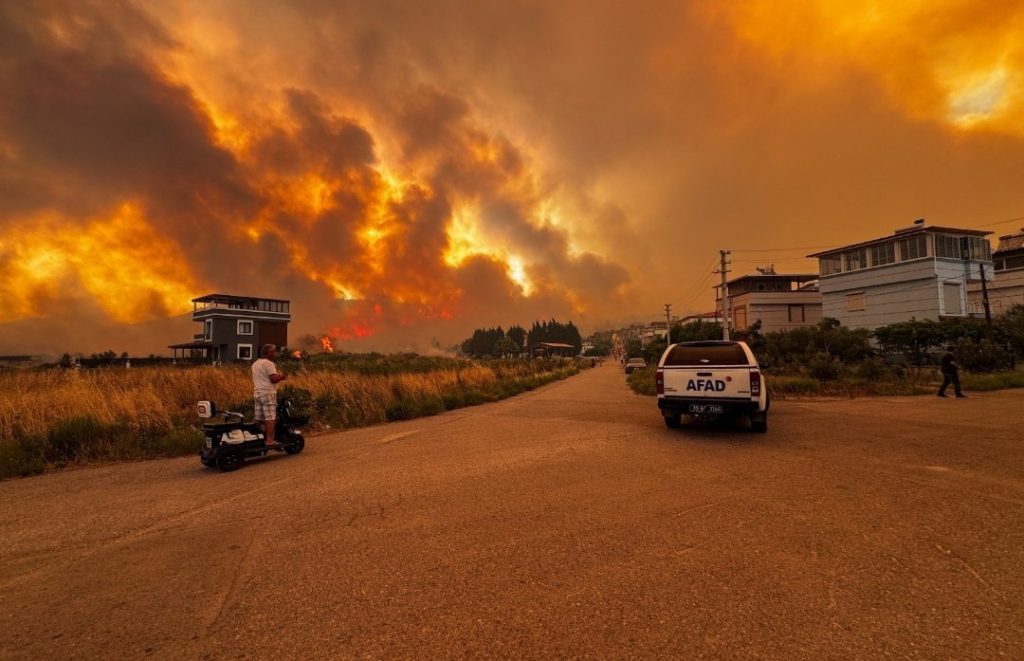U.S. forces struck Iran’s three main nuclear sites, President Donald Trump said late on Saturday, and he warned Tehran it would face more devastating attacks if it does not agree to peace.
After days of deliberation and long before his self-imposed two-week deadline, Trump’s decision to join Israel’s military campaign against its major rival Iran is a major escalation of the conflict and risks opening a new era of instability in the Middle East.
Posting on his social media platform Truth Social after the strikes, Trump said, “This is an HISTORIC MOMENT FOR THE UNITED STATES OF AMERICA, ISRAEL, AND THE WORLD. IRAN MUST NOW AGREE TO END THIS WAR.”
Addressing the nation from the White House at 10 pm EST, President Donald Trump asserted that Iran’s key nuclear sites were “completely and fully obliterated.” There was no independent damage assessment.
With his unprecedented decision to bomb Iran, directly joining Israel’s air attack on its regional arch-foe, the U.S. president has done something he had long vowed to avoid—intervene militarily in a major foreign war.
The dramatic U.S. strike, including the targeting of Iran’s most heavily fortified nuclear installation deep underground, marks the biggest foreign policy gamble of Trump’s two presidencies and one fraught with risks and unknowns.
Trump, who insisted on Saturday that Iran must now make peace or face further attacks, could provoke Tehran into retaliating by closing the Strait of Hormuz, the world’s most important oil artery; attacking U.S. military bases and allies in the Middle East; stepping up its missile barrage on Israel; and activating proxy groups against American and Israeli interests worldwide, analysts said.
Such moves could escalate into a broader, more protracted conflict than Trump had envisioned, evoking echoes of the “forever wars” that America fought in Iraq and Afghanistan, which he had derided as “stupid” and promised never to be dragged into.
“The Iranians are seriously weakened and degraded in their military capabilities,” said Aaron David Miller, a former Middle East negotiator for Democratic and Republican administrations. “But they have all sorts of asymmetric ways that they can respond… This is not going to end quick.”
Fordow wasn’t just another nuclear site. It was Iran’s most protected one.
Built in secret starting in 2006, it took six years to complete and became active in 2012. Buried under 90 meters of rock near Qom, it was made to survive airstrikes and even bunker-busting bombs.
The… pic.twitter.com/o0SyVwrQbt
— Open Source Intel (@Osint613) June 22, 2025
In the lead-up to the bombing that he announced late on Saturday, Trump had vacillated between threats of military action and appeals for renewed negotiation to persuade Iran to reach a deal to dismantle its nuclear program.
A senior White House official said that once Trump was convinced that Tehran had no interest in reaching a nuclear agreement, he decided the strikes were “the right thing to do.”
Trump gave the go-ahead once he was assured of a “high probability of success,” the official said—a determination reached after more than a week of Israeli air attacks on Iran’s nuclear and military facilities paved the way for the U.S. to deliver the potentially crowning blow.
Trump touted the “great success” of the strikes, which he said included the use of massive “bunker-buster bombs” on the main site at Fordow. But some experts suggested that while Iran’s nuclear program may have been set back for many years, the threat may be far from over.

Iran denies seeking a nuclear weapon, saying its program is for purely peaceful purposes. “In the long term, military action is likely to push Iran to determine nuclear weapons are necessary for deterrence and that Washington is not interested in diplomacy,” the Arms Control Association, a non-partisan U.S.-based organization that advocates for arms control legislation, said in a statement.
“Military strikes alone cannot destroy Iran’s extensive nuclear knowledge. The strikes will set Iran’s program back, but at the cost of strengthening Tehran’s resolve to reconstitute its sensitive nuclear activities,” the group said.
Source: reuters.com






